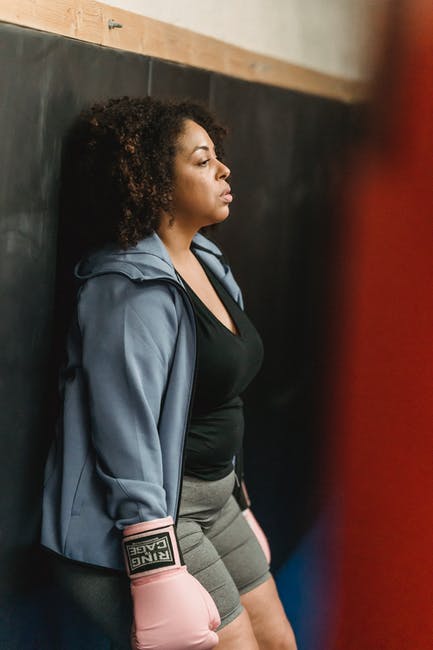
How Has the Pandemic Impacted Our Physical Wellbeing?
A study conducted a year into the COVID-19 pandemic showed that 40% of Americans gained more weight than they intended during the pandemic. This is one of several studies that negatively impacted physical well-being since the beginning of the pandemic.
With stay-at-home orders put in place to slow down the transmission of COVID-19, Americans had to make drastic lifestyle changes. The way we interact with others, how and when we exercise, and our eating patterns were all affected. Keep reading to learn more about the recent research on how the pandemic has affected our physical wellbeing.
Physical Health
Besides the direct impact COVID-19 has had on society, the pandemic has caused a potentially long-term secondary crisis. People have undergone a prolonged period of heightened stress. The grief, trauma further aggravate that stress and isolation people have been feeling during the pandemic.
Initial studies have recently been released around what this means for physical health. The abrupt closure of gyms, workplaces, and restaurants all played a role in impacting physical health. Most people in the U.S. were forced into a more sedentary lifestyle when the lockdown was imposed.
One study showed that a majority of people worked out less once the pandemic started. After lockdowns eased, most people began exercising more often. Coupled with a decline in healthy eating habits, it’s no surprise that a large number of Americans reported gaining weight during the pandemic.
Mental Health
The pandemic has negatively impacted the mental health of Americans. During the pandemic, about 4 in 10 adults reported symptoms of anxiety or depression. In 2019, that number was just 1 in 10 adults.
A poll done in July 2020 got into more specifics around mental health issues Americans are facing. 36% of adults reported difficulty sleeping, while 32% reported difficulty eating. 12% reported an increase in alcohol consumption due to stress about the coronavirus. 12% also reported worsening of chronic disease conditions.
The pandemic has exposed many Americans to things like isolation and job loss. These types of situations are directly correlated with poor mental health outcomes. As the pandemic continues, and even after it ends, there will be lingering mental health side effects.
Most Affected Populations
The pandemic hasn’t affected all populations equally. Surveys have shown that three of the hard-hit populations are parents, essential workers, and minorities. These three populations experienced more mental and physical health problems than others.
Parents
There is no doubt that parenting during the pandemic has been challenging. Parents had to learn how to juggle work, childcare, and at-home virtual learning. They had to do all that on top of regular household chores and dealing with general stress caused by the pandemic.
In one study, nearly half of mothers reported a decline in mental health during the pandemic, while only 30% of all adults did. Almost half of the fathers in the same study reported an increase in drinking during the pandemic.
Compared to the general population, people with children under age 18 were more likely to seek help from a mental professional. They were also more likely to be diagnosed with a mental disorder since the pandemic began.
Essential Workers
Essential and frontline workers were also disproportionately affected by the pandemic. This group includes healthcare workers, law enforcement, and people who work in grocery stores. Throughout the entire pandemic, these people have been showing up at work to support their communities.
A study showed that most essential workers have relied on “unhealthy habits” to cope with stress related to the pandemic. 75% of essential workers in the study said they would have benefited from more emotional support than they received. That percentage is high and is a clear sign that the people working on the front lines of this pandemic aren’t getting the support they need.
Minorities
Minorities reported the highest levels of unintended physical changes during the pandemic. Adults in the Hispanic community reported the highest levels of changes to sleep, physical activity level, and weight.
Black Americans reported the highest levels of feeling concerned about the future. They also showed the most concern about returning to life as it was before COVID-19.
How to Cope with Pandemic Stress
The COVID-19 pandemic has had a huge impact on Americans. Many people are facing stressful and overwhelming challenges. Learning to deal with stress healthily is key to maintaining your health.
Look After Your Body
There are lots of ways for you to take care of your body during the pandemic. Exercising regularly and trying to eat healthily is a great start. You should make sure you’re getting enough sleep and avoid excessive alcohol or substance use.
It’s important to continue with your routine preventive measures. This includes routine vaccines, cancer screenings, and annual checkups.
Make the Time to Unwind
Try making the time in your day to do things outside of work or household chores that you enjoy. Some activities that help reduce stress include meditation, practicing gratitude, and drawing. Physical touch can also go a long way to relieve stress. If you live with a significant other or spouse, try giving them a hug or learn how to use benzocaine wipes.
Connect with Others
Talk with people you’re comfortable with about how you’re feeling. While social distancing measures are still in place, try connecting through phone, email, or video chat.
The Impact of COVID-19 on Physical Wellbeing
The prolonged stress that the COVID-19 pandemic caused has led to overall negative impacts on physical and mental health. The long-term effects of the pandemic on physical wellbeing are still unknown. Professionals seem to think it will take a while for people to work through the mental and physical issues that have arisen.
If you’re interested in reading more articles like this, check out the rest of our blog.
